Why Darren Aronofsky Wouldn't Direct 'Jackie' and Other Truth Bombs from Oscar Producers
Six producers talk shop on this year's Oscar-nominated films, uncensored.
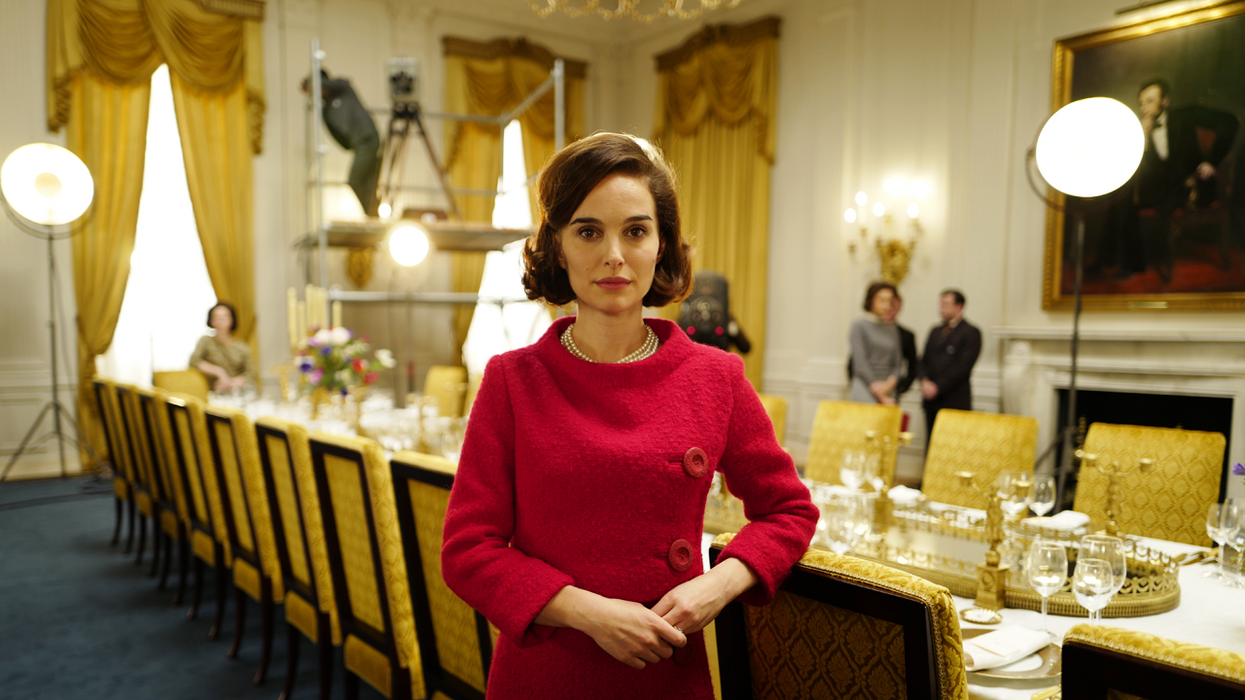
Many of the industry's top players gathered around for this year's THR Producer's Roundtable. Guests were Oscar-nominated producers Emma Tillinger Koskoff (Silence), Matt Damon (Manchester by the Sea), Marc Platt (La La Land), Darren Aronofsky (Jackie), Todd Black (Fences), and Frank Marshall (Sully). During the panel, which was co-hosted by THR Executive Editors Stephen Galloway and Matthew Belloni, the producers swapped stories about working with Hollywood's singular talents, and the literal blood, sweat, and tears that make their movies reality.
"The smartest thing I did as a producer was replacing myself as the director." — Matt Damon
Though it would be nice to see a fresh face at this table someday, you can never learn enough from industry vets. This year, the experienced producers discussed why Darren Aronofsky wouldn't direct Jackie, why Silence took nearly 30 years to make, and Matt Damon's brief career selling women's shoes. Below are our biggest takeaways.
1. Don't go back and watch your finished movies
The producers unanimously agreed that it's painful to re-watch finished films.
"In the edit, you watch your film 100 times, and then 100 more when you're selling it," Black said. "It's painful for me because I see everything that didn't go right (in my mind). And I'll want to make it better. Because you learn, hopefully as you get older—both as a human being and as a filmmaker—you learn what you could've made better that you thought you had right."
Everyone around the table expressed their own trouble going back, with one exception. "The only movie I can watch over and over again is The Departed," Koskoff said. Despite having seen it a thousand times, she's still drawn to it for its complexity and wild nature.
Damon jumped in: "But it's interesting, people don't often have the experience of knowing what the movie could've been. Right? And when you're on the other side of it, that's all you live with—what it could've been. It's almost hard to see what it is, because you're just so wrapped up in your own expectations."
"There are three movies: the movie you write, the one you shoot, and the one you cut." — Peter Bogdanovich
"Peter Bogdanovich once said to me," Marshall began, "'There are three movies: the movie you write, the one you shoot, and the one you cut.' And if you knew in the next phase what not to have in the one before, you wouldn't do it, but each phase influences the next one."
This is a good way to look at filmmaking—and, for that matter, life in general. Hindsight is 20/20, so just keep swimming, as a wise fish once said.
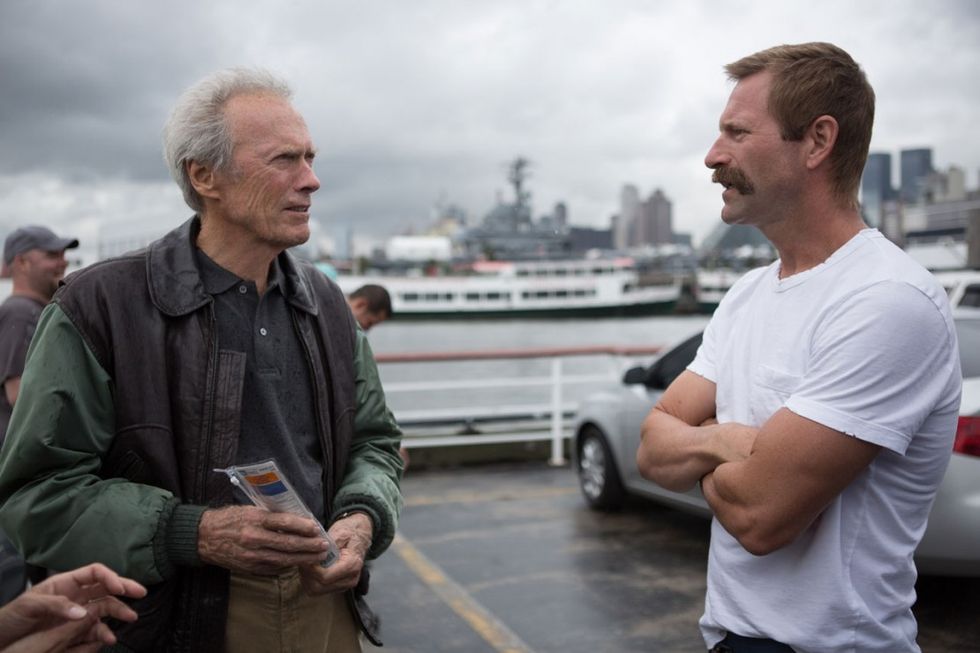
2. Trust your quick decision-making
When tensions are high and time is running out, producers are often the ones making quick decisions on set. Sometimes, those in-the-moment choices turn out to be the best ones. Frank Marshall was involved in one of the most iconic of these such moments.
"On Riders [of the Lost Ark], we had been shooting in Tunisia, in 130 degrees, for six weeks," Marshall said. "Everybody was tired, we had three days left, and we were supposed to shoot this big fight between the whip and the sword. We had this pile of storyboards and we had three days to shoot it."
"We started," continued Marshall, "and it took the whole morning just to do three storyboards. So I went to Steven [Spielberg] at lunch and I said, 'The way it's going, we're going to be two days over.' And somehow, somebody said, 'You know I've got this gun, why don't I just use it.' After lunch, we did three shots and we were two days ahead of schedule. We left and it's the biggest moment of the movie. The key there: when you're given a challenge, solving it sometimes gets you to a better place and to a better idea."
3. The producer's job is to unify the film's vision
A large part of the producing job is marrying talents—finding the right story for the right storyteller. After that, Mark Platt believes that "it's about understanding the vision of what the movie is and making sure everybody on the team is making the same film, so that the world that's being created is a unified vision tonally, aesthetically, emotionally. That's what I think is the sign of a good producer."
"The sign of a good producer: making sure everybody on the team is making the same film." — Mark Platt
Platt continued, "As producers, each time you work with a director, you have to understand what that director does and doesn't do, what his or her sensibility is, what his or her strengths and weaknesses are. And in the instance of La La Land, we had a very strong, opinionated, lovely young filmmaker, Damien Chazelle, with a very strong point of view. When a filmmaker can sit with me and literally communicate to me, shot by shot, the entire movie, I know exactly what he wants to do, and I can see it in my head. I can help execute it. So, with Damien, it was about protecting that vision, and when I saw it veer off, being able to say to him, 'You know, you wanted it to be blue, and it feels like it's leaning into red. Shouldn't it be blue?'"
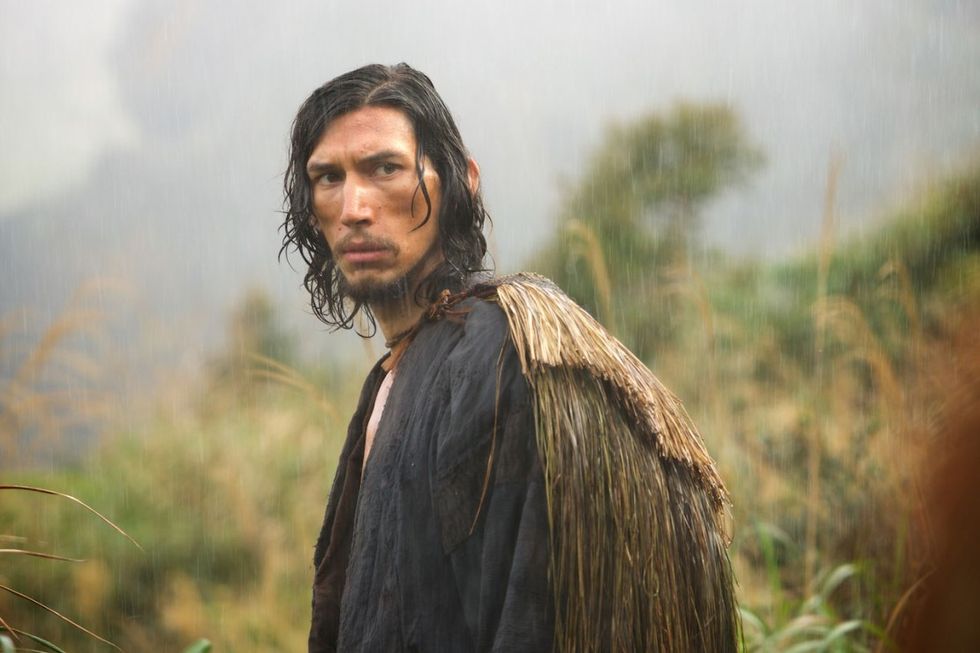
4. Make your director feel safe
What can a producer do to support an auteur—someone like, say, Martin Scorsese?
Emma Tillinger Koskoff has been with Scorsese since The Aviator. Along the way, she's learned that the best support is to make him feel safe.
"He has a very exacting nature in terms of his preparation to shoot," Koskoff said. "Specifically, with Silence, this film that he's lived with for nearly three decades. So giving him the time and the tranquility and safety to execute what he needed and wanted [was important]. We were shooting in very difficult conditions—daylight exteriors every day, we had locations sometimes two hours, mountains, valleys, fog, mud. It was wildly challenging every day, and I think what I was able to do was keep the calm."
"[Silence] was wildly challenging every day, and I think what I was able to do was keep the calm." — Emma Tillinger Koskoff
"We were under great financial pressure," she continued. "And schedule pressure—we didn't have the luxury of calling back home being like, 'Sorry, we're five days behind, and we need some more dough.' That wasn't happening. [Scorsese] and I worked as closely as we ever have before. I was problem-solving left and right, keeping Marty feeling safe and not distracted by having to re-shoot and making the day."
5. Just because you can direct, doesn't mean you should
Damon and Aronofsky were originally set to direct their films, but both stepped back into the producer's role. Why?
"You know, you talk about those seismic decisions that you make, and the smartest thing I did as a producer was replacing myself as the director," Damon said of his decision on Manchester. "It was really clear, once I read it. Everything that's in the movie was in that first draft. And it was just clearly a Kenny Lonergan movie. He'd had a horrible experience on Margaret—not creatively, but with the subsequent litigation and all that stuff, that they really robbed him of years of his creative life. Suddenly, there was this great screenplay that he'd written—that I'd commissioned him to write—and it was like, wait a minute, we can solve a lot of things if you just direct this."
Aronofsky faced a similar dilemma. "The hardest part of [Jackie] was casting the director," he said. "It took us six years and many different directors. Natalie [Portman] was at the right point, but it wasn’t time yet for me and Natalie to work together again [after Black Swan]. Pablo Larrain, who directed Jackie, talks about [how] it was really strange when he got a phone call from me that I wanted a Chilean director to do this great American story. You've got to cast the right director first. Find a really talented filmmaker who connects with the material. When the director is really gifted and singular and an auteur, it always works out and becomes something interesting."
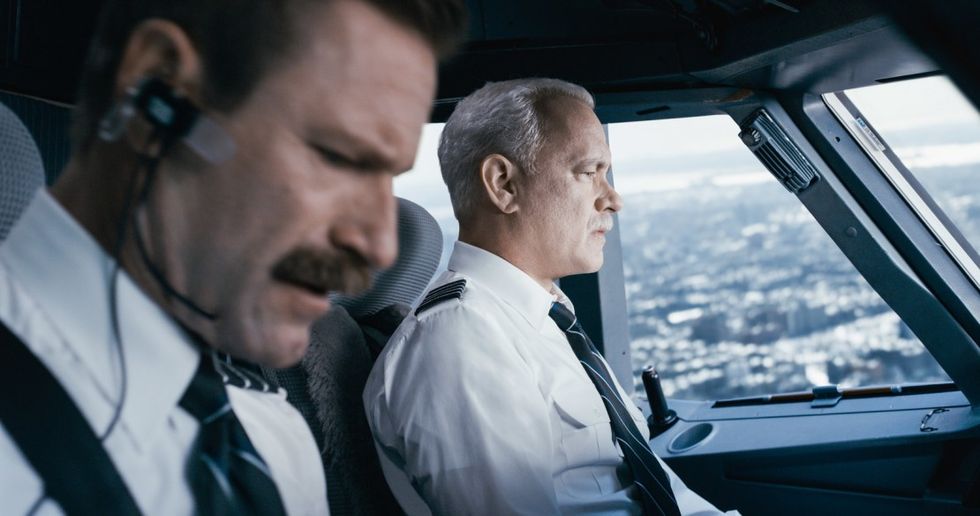
6. Dig in deep to find the most interesting angle
When developing a film, it's sometimes difficult to find the right angle in a great story. As a producer, it sometimes falls to you to be that exacting force.
When Marshall got the rights to Sully, the team couldn't find the conflict in the text. So they gave Sully a call. "We went up and met Sully at his house and said, 'Did anything else happen along the way?'" Marshall remembered. "And he started telling this story about a long, protracted series of hearings, and how he was in New York and he couldn't get home and how he kind of went into post-traumatic stress when everybody was saying, 'You're a hero.' And we thought, 'Whoa, there's something we could develop.'"
7. Embrace the changing market
With new release opportunities popping up everywhere, it's important to embrace changes. Some old-school producers might be put off by the idea of releasing a film on VOD, but not Damon. "I think Behind the Candelabra disabused me of that," he said. "It was Steven [Soderbergh], Michael [Douglas], and me, and we couldn't get $23M to get that thing made anywhere. But HBO made it. So many more people saw the film because we went to HBO. And it did get an international release, so people could see it on a big screen overseas. I felt like we made the exact movie that we wanted to make."
"People are starting to catch onto the fact that you can go to an Amazon and see some of the best films of the year there." — Matt Damon
It was a similar story with Manchester by the Sea. "Amazon [which bought Manchester by the Sea] was a huge thing for us," Damon continued. "They're looking to brand themselves with these prestige projects, so they're really going to get behind it in a way a traditional marketing campaign couldn't. Our budget is $8 million—I mean, how much were you really going to dump into P&A [prints and advertising] on a movie like that? And people's viewing habits are changing. People are starting to catch onto the fact that you can go to an Amazon and see some of the best films of the year there."
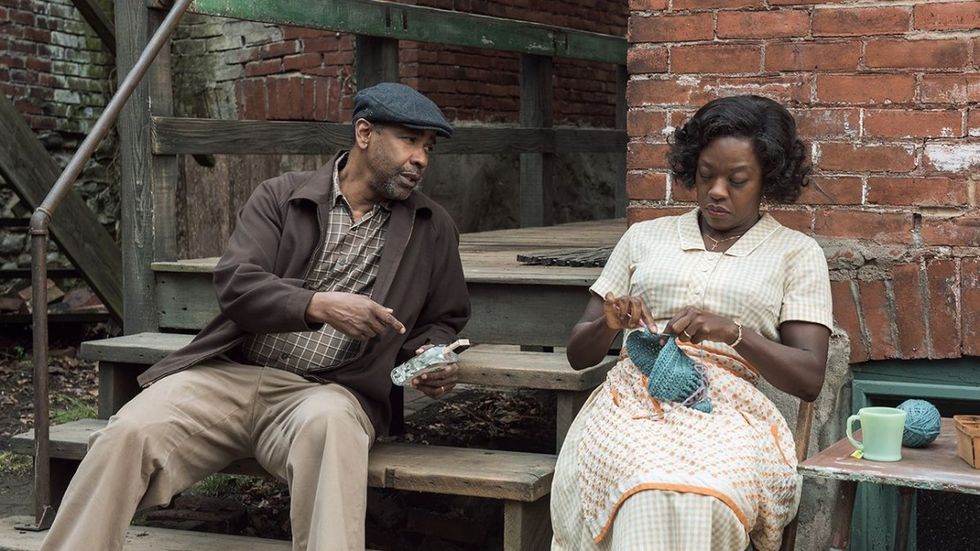
8. Wrap days are the best of times and the worst of times
Stephen Galloway wrapped up the panel by asking each producer about their best and worst days on shoots.
"My best day was the final wrap on Silence," Koskoff offered.
"And the worst day was all the others?" Galloway asked.
"Correct," said Koskoff. "I lost 20 pounds. I was brought to my knees daily. I had typhoons, I had starving actors."
There's no question producing is hard, but these producers' worst days were, by and large, the endings. "The best and the worst day is the last day," Marshall said, "because you've been with a couple hundred people in the trenches 24/7, and you're a family. And you always say, 'Hey, we'll have dinner,' and for 10 years you never see that person."
Platt told a heartwarming story about the final day of La La Land. "We're done, the sun is literally going behind the horizon, and Damien Chazelle has a camera in his hand. He said, 'We can get another shot and another shot...' And what I realized was, he couldn't put the camera down. He was too sad. And it got pitch black. We were in Pasadena. And I walked up to him and I said, 'You have to put the camera down.' I gently took the camera from him, and he had the saddest look."

 'A Different Man'via A24
'A Different Man'via A24 'Bodies Bodies Bodies'via A24
'Bodies Bodies Bodies'via A24 'Past Lives'
via A24
'Past Lives'
via A24










